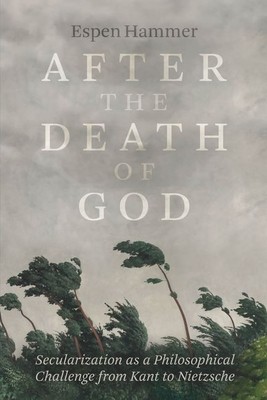
- We will send in 10–14 business days.
- Author: Espen Hammer
- Publisher: University of Chicago Press
- ISBN-10: 0226838498
- ISBN-13: 9780226838496
- Format: 15.2 x 22.9 x 1.6 cm, hardcover
- Language: English
- SAVE -10% with code: EXTRA
Reviews
Description
A fresh history of nineteenth-century philosophy's many ideas about secularization. The secularization thesis, which held that religious belief would gradually yield to rationality, has been thoroughly debunked. What, then, can we learn from philosophers for whom the death of God seems so imminent? In this book, Espen Hammer offers a sweeping analysis of secularization in nineteenth-century German philosophy, arguing that the persistence of religion (rather than its absence) animated this tradition. Hammer shows that Kant, Hegel, Feuerbach, Marx, and Nietzsche, each in their own way, sought to preserve and transform religion's ethical and communal aspirations for modern life. A renewed appreciation for this tradition's generous thought, Hammer argues, can help us chart a path through needlessly destructive conflicts between secularists and fundamentalists today.EXTRA 10 % discount with code: EXTRA
The promotion ends in 18d.19:38:45
The discount code is valid when purchasing from 10 €. Discounts do not stack.
- Author: Espen Hammer
- Publisher: University of Chicago Press
- ISBN-10: 0226838498
- ISBN-13: 9780226838496
- Format: 15.2 x 22.9 x 1.6 cm, hardcover
- Language: English English


Reviews